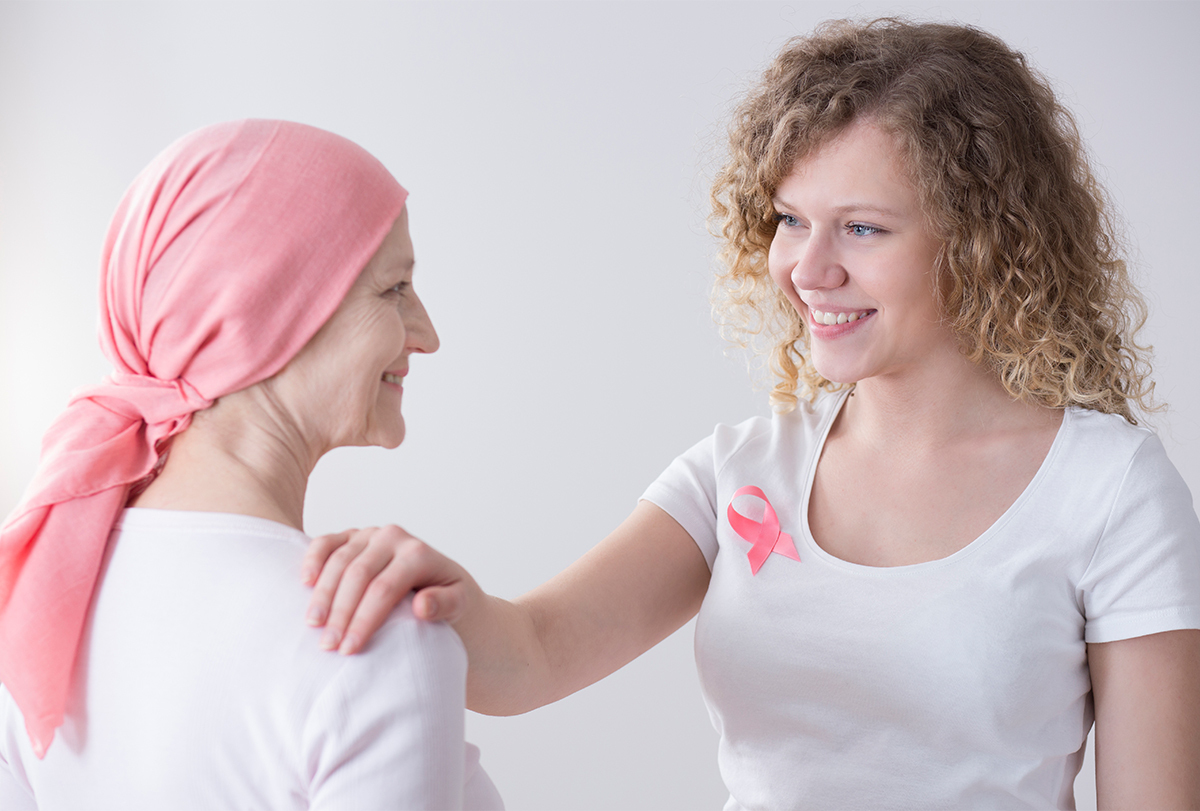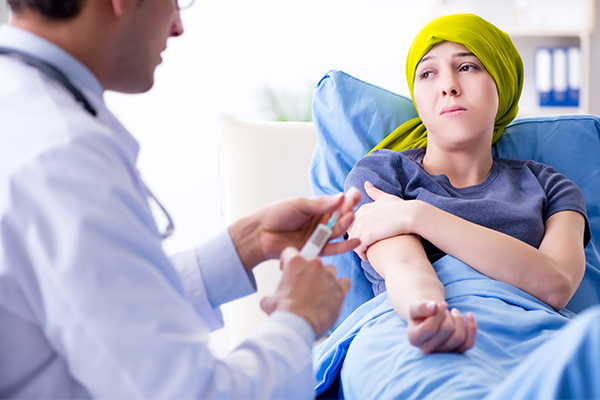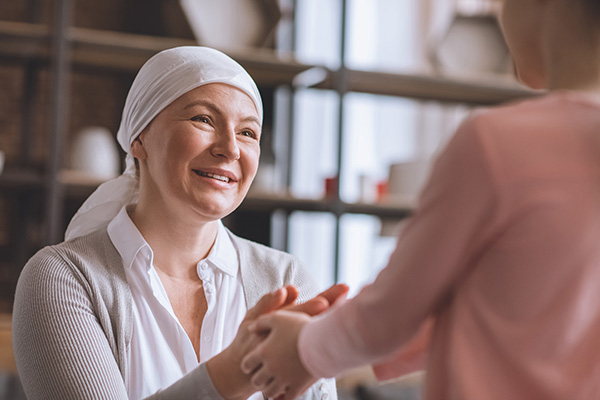In this article:
Being a board-certified gynecologist who has worked in the field for more than 2 decades, I knew all there is to know about breast and cervical cancer at the time of my diagnosis except actually living with it.

So, I gained all my clinical understanding about this disease in medical school, but really learned how to be both healthy and well only from my cancer journey.
Today, I use both my traditional medical training as well as my personal experience to provide comprehensive care to my patients and in my writing for mass media.
Why Did I Get Cancer?
I do not have one of the well-known genetic predispositions of BRCA1 or BRCA2, although I think there may be a genetic component to my cancer diagnosis. (1)
I have lobular breast cancer – 80% of breast cancers are ductal, (2) and my mother was also diagnosed with lobular breast cancer (after me).
The following risk factors made me increasingly susceptible to breast cancer:
- The unrelenting stress and misery associated with my job surely affected me.
- I was sleeping poorly.
- I was sick with countless colds.
- I had pneumonia.
- I had an ear infection, which resulted in a ruptured eardrum in the year before my diagnosis.
- Excessive alcohol intake may have also contributed to the onset of this condition since I was a binge drinker in my 20s and early 30s and then regularly drank 2 glasses of wine almost every night.
- My later-in-life first pregnancy was also probably a risk factor. I became pregnant at age 40 and delivered at age 41.
Clearly, all these things compromised my immunity and made me an easy target for cancer.
The First Sign of Cancer
I found a lump that seemed to have come out of nowhere. I was bending over to pick up something off the floor. My thigh pressed on my breast, and I felt a palpable 2 cm mass.
In retrospect, my breast had felt odd over the preceding 6 months – at times feeling heavy, other times feeling very tender and sore, much like in early pregnancy. Outside of pregnancy, I had never experienced breast tenderness.
I consulted a doctor about 2 months after first feeling the lump. Since it seemed to have come about suddenly, I thought it was a cyst that would go away on its own. It didn’t.
My Reaction to the Cancer Diagnosis
I was devastated. I thought I was healthy. I thought I knew what being healthy meant. I exercised regularly, didn’t smoke, ate healthy food, and had lots of loving, supportive friends and family. I hated the thought of being a patient.
My Treatment Plan

I had the standard treatment for breast cancer at the time. There was a lot of discussion at first about what my options were, and deciding what to do took some time and careful consideration.
I was not a candidate for a lumpectomy. And although I received conflicting opinions, I decided to have surgery before chemotherapy.
Medical consultation
It was almost 7 weeks from the day I was diagnosed to the day of my surgery. During that time, I saw a local surgeon who referred me to the regional medical center where I saw a surgical oncologist, a medical oncologist, and a radiation oncologist.
I got a second opinion and saw all those oncologists again at another larger institution. I had more imaging and several attempted biopsies of my lymph nodes. There was lots of talking and planning.
Surgery
One medical oncologist suggested I start with chemotherapy, but the surgical oncologist who I ended up choosing said I need to prove that chemotherapy is necessary.
The only way to do that is by obtaining more tissue from my breast and determining if any lymph nodes were involved. So I started with surgery. I chose a unilateral mastectomy instead of bilateral as I didn’t want my unaffected breast to be removed.
Chemotherapy
I then had eight rounds of chemotherapy every 2 weeks.
- The first four rounds were Adriamycin and Cytoxan.
- The second four rounds were with Taxol.
Radiation therapy
About a month after completing chemotherapy, I did 5 weeks of radiation therapy.
Plastic surgery
I also saw a plastic surgeon who did my reconstruction.
Self-Care
In between appointments, I took care of myself. I slept, ate healthy nourishing food, and exercised.
Although my routine varied for each segment of treatment, I maintained a self-care schedule that prioritized sleep, healthy eating, and exercise. I also had the luxury of being able to stop work, which I did the day I was diagnosed.
My Treatment Experience
It’s hard to admit that my experience with cancer treatment was positive, but it was. I finally had the time and space to focus on caring for myself, something I had not been able to do for years.
Surprisingly perhaps, I was not stressed. I was relaxed. For over a year, I had known something was not right, but I couldn’t put my finger on it. Now that I knew what it was, I could finally relax.
My Biggest Challenge During the Treatment
Just getting through it. Although my overall experience with cancer treatment was positive, there were plenty of hard times. Recovering from surgery was hard. It is painful at first, but then long after the pain is better, I was still not back to my routine.
Chemotherapy is, of course, hard. I was never nauseous or nor did I ever vomit, but I felt lousy. I lost all my hair (3) and became profoundly anemic. (4) I still tried to exercise throughout, which I managed to do on most days, but it never felt as good as exercise usually does.
By the time radiation treatment rolled around, I was just sick of it and couldn’t wait for it to be over.
My Overall Cancer Journey

It was and continues to be a journey. I don’t like the battle analogy, even if it does feel accurate at times. Battle and war destroy so much more than just the enemy. I prefer to think of it as a peaceful resolution rather than winning a war.
I have reached an agreement with my cancer that I cannot live well, survive, and thrive if cancer is present. So it has to go.
Lessons That Cancer Taught Me
Never take your health for granted. Good health is precious, and once it’s gone, it can be gone forever. If that happens, your life is forever changed.
I thought I was healthy. I’m a doctor. I know what healthy is. I lived a mostly healthy lifestyle and had access to good healthcare. I still ended up with this deadly disease. It can happen to anyone, which makes it a great equalizer.
But it is more likely to strike those who are not taking care of themselves and those who don’t eat healthy food, exercise, get restorative sleep, and have loving, supportive contacts, be it, family or friends.
There are so many things to live for, so many events to experience, so many places to visit, and so many adventures to witness. Life is short as it is. Don’t make it any shorter.
- Was this article helpful?
- YES, THANKS!NOT REALLY


